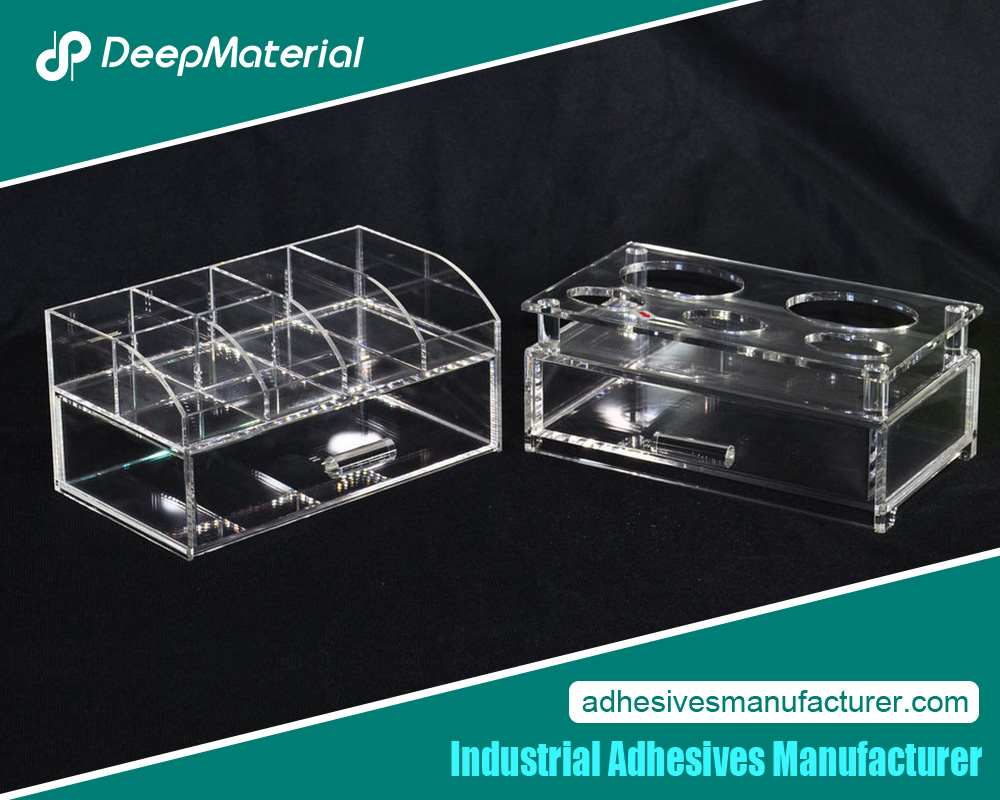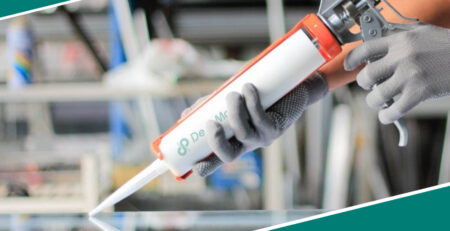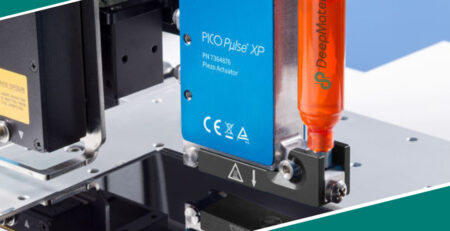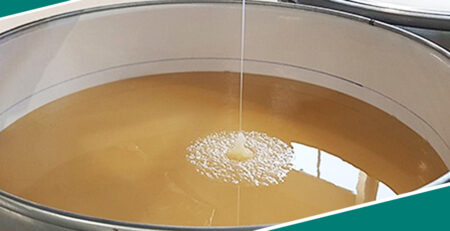Research on the Thermal Stability of Conformal Coating Materials and Their Temperature Tolerance Range
Research on the Thermal Stability of Conformal Coating Materials and Their Temperature Tolerance Range
Conformal coating, as a functional coating material widely used in the electronics, electrical and other fields, plays a key role in protecting electronic components and improving the reliability of equipment. Thermal stability is one of the important indicators to measure the performance of conformal coatings. It directly affects the service life, protective effect of conformal coatings in different temperature environments and their compatibility with the coated materials. Understanding the maximum and minimum temperatures that conformal coatings can withstand is of great significance for the correct selection and application of conformal coating materials and ensuring the normal operation of electronic devices and other equipment under extreme temperature conditions.
 Material Composition and Classification of Conformal Coatings
Material Composition and Classification of Conformal Coatings
Conformal coatings are mainly composed of polymer resins, solvents, additives, etc. According to different polymer resins, common conformal coatings can be divided into acrylate-based, epoxy resin-based, silicone-based, polyurethane-based, etc. Different types of conformal coatings, due to the differences in their material compositions, have obvious differences in thermal stability and temperature tolerance.
Acrylate-based conformal coatings have good transparency and flexibility, fast curing speed, and relatively low cost. Epoxy resin-based conformal coatings have excellent adhesion, chemical corrosion resistance and mechanical properties, but the curing process is relatively complex. Silicone-based conformal coatings are renowned for their excellent thermal stability, weather resistance and electrical insulation properties, and can maintain good performance within a wide temperature range. Polyurethane-based conformal coatings have good wear resistance, flexibility and chemical corrosion resistance.
Influencing Factors of Thermal Stability
- Structure of Polymer Resin: The molecular structure of the polymer resin plays a decisive role in the thermal stability of the conformal coating. For example, polymers containing aromatic ring structures usually have high thermal stability because the conjugated structure of the aromatic rings can increase the intermolecular forces and improve the rigidity of the molecular chain, making it less likely to deform and degrade at high temperatures.
- Cross-linking Density: Conformal coatings will form a certain cross-linked structure during the curing process. The higher the cross-linking density, the stronger the intermolecular forces, and the better the thermal stability of the coating. An appropriate cross-linking density can prevent the sliding and migration of molecular chains at high temperatures and improve the heat resistance of the coating.
- Function of Additives: Additives such as stabilizers and flame retardants also have an important impact on the thermal stability of conformal coatings. Stabilizers can inhibit the oxidation and degradation reactions of polymers under thermal action and extend the service life of the coating. Flame retardants can decompose at high temperatures to generate non-combustible gases, dilute the oxygen concentration and prevent combustion, thus improving the heat resistance and flame retardancy of the coating.
- Curing Conditions: The curing process of the conformal coating has a significant impact on its final thermal stability. Appropriate curing temperature and time can ensure that the coating is fully cured to form a uniform and dense cross-linked structure. If the curing is insufficient, there may be unreacted groups in the coating, which are likely to react at high temperatures, leading to a decrease in the performance of the coating.
Maximum Temperature Tolerance of Conformal Coatings
- Acrylate-based Conformal Coatings: Generally speaking, the maximum operating temperature of acrylate-based conformal coatings is about 80°C – 120°C. Within this temperature range, acrylate-based coatings can maintain good flexibility and adhesion, but their long-term stability at high temperatures is relatively poor. As the temperature rises, phenomena such as softening and discoloration may occur.
- Epoxy Resin-based Conformal Coatings: The maximum operating temperature of epoxy resin-based conformal coatings is usually between 120°C – 180°C. Epoxy resin coatings with special formula design and curing treatment can still maintain good mechanical properties and electrical insulation properties at higher temperatures. However, when the temperature exceeds its maximum operating temperature, the epoxy resin may undergo thermal decomposition, resulting in a decrease in the performance of the coating.
- Silicone-based Conformal Coatings: Silicone-based conformal coatings have excellent high-temperature resistance, and their maximum operating temperature can reach 200°C – 300°C or even higher. The molecular structure of silicone polymers contains silicon-oxygen bonds, which have high bond energy, making them less likely to break at high temperatures, thus ensuring the stability of the coating in a high-temperature environment. Silicone-based conformal coatings have been widely used in high-temperature application fields such as aerospace and automotive electronics.
- Polyurethane-based Conformal Coatings: The maximum operating temperature of polyurethane-based conformal coatings is generally about 100°C – 150°C. The urethane bonds in the polyurethane molecules have good stability within a certain temperature range, but they may undergo hydrolysis and thermal decomposition reactions at high temperatures, affecting the performance of the coating.
5. Minimum Temperature Tolerance of Conformal Coatings
- Acrylate-based Conformal Coatings: Acrylate-based conformal coatings are prone to become brittle at low temperatures, and their minimum operating temperature is generally around -20°C – 0°C. When the temperature is lower than this range, the acrylate coating may crack and lose its protective effect on electronic components.
- Epoxy Resin-based Conformal Coatings: The minimum operating temperature of epoxy resin-based conformal coatings is usually between -40°C – -20°C. In a low-temperature environment, the flexibility of the epoxy resin will decrease, but by adding appropriate toughening agents, its performance at low temperatures can be improved, enabling it to adapt to the low-temperature environment to a certain extent.
- Silicone-based Conformal Coatings: Silicone-based conformal coatings have good low-temperature performance, and their minimum operating temperature can reach -60°C or even lower. The molecular chains of silicone polymers can still maintain a certain degree of flexibility at low temperatures, and are not prone to embrittlement and cracking, so they can effectively protect electronic components in a low-temperature environment.
- Polyurethane-based Conformal Coatings: The minimum operating temperature of polyurethane-based conformal coatings is generally about -30°C – -10°C. The soft segment part in the polyurethane molecules endows the coating with a certain degree of flexibility, enabling it to maintain a certain elasticity at low temperatures, but its flexibility will also be affected to a certain extent under extremely low temperatures.
Experimental Research Methods and Result Analysis
In order to accurately determine the thermal stability and temperature tolerance range of conformal coatings, experimental techniques such as thermogravimetric analysis (TGA) and differential scanning calorimetry (DSC) are usually used. Thermogravimetric analysis can measure the mass change of the coating at different temperatures, thereby determining its thermal decomposition temperature and thermal stability. Differential scanning calorimetry can analyze the heat change of the coating during the heating and cooling processes, and understand important parameters such as its phase transition temperature and glass transition temperature.
Through experimental research on different types of conformal coatings, it is found that in a high-temperature environment, the mass loss of silicone-based conformal coatings is the smallest and their thermal stability is the best; while in a low-temperature environment, the flexibility of silicone-based and polyurethane-based conformal coatings is relatively good, and they can maintain good performance at lower temperatures.
Analysis of Practical Application Cases
- In the Field of Electronic Devices: In electronic devices such as smartphones and tablets, conformal coatings are widely used to protect the electronic components on the circuit boards. Since these devices may encounter different temperature environments during use, the requirements for the thermal stability of conformal coatings are relatively high. For example, in hot summer, the internal temperature of the device may rise, and at this time, the conformal coating needs to maintain good performance at high temperatures to prevent damage to the electronic components. In cold winter, the conformal coating also needs to have a certain degree of low-temperature flexibility to ensure the normal operation of the device.
- In the Aerospace Field: Aerospace equipment will experience extreme temperature changes during flight, from the low-temperature environment at high altitudes to the high-temperature environment near the engine. Therefore, extremely high requirements are put forward for the thermal stability and temperature tolerance of conformal coatings in the aerospace field. Silicone-based conformal coatings have become the preferred material in the aerospace field due to their excellent thermal stability and weather resistance.
- In the Automotive Electronics Field: The temperature in the engine compartment of a car is relatively high, and at the same time, in cold regions in winter, automotive electronic devices also need to work normally in a low-temperature environment. Therefore, the conformal coatings used in the automotive electronics field need to have good high-temperature and low-temperature resistance. Both epoxy resin-based and silicone-based conformal coatings are widely used in the automotive electronics field.
 Conclusion
Conclusion
The thermal stability and temperature tolerance of conformal coating materials are closely related to their material composition, structure and curing conditions, etc. Different types of conformal coatings have differences in the maximum and minimum temperature tolerance ranges. Silicone-based conformal coatings show excellent performance in terms of high-temperature and low-temperature resistance, while acrylate-based, epoxy resin-based and polyurethane-based conformal coatings also have their own characteristics and application scopes. In practical applications, conformal coatings should be selected reasonably according to specific usage environments and requirements to ensure the reliability and stability of electronic devices and other equipment under different temperature conditions. In the future, with the continuous development of science and technology, the requirements for the thermal stability and temperature adaptability of conformal coatings will continue to increase, and it is of great significance to further research and develop high-performance conformal coating materials.
For more about research on the thermal stability of conformal coating materials and their temperature tolerance range, you can pay a visit to Deepmaterial at https://www.adhesivesmanufacturer.com/ for more info.












